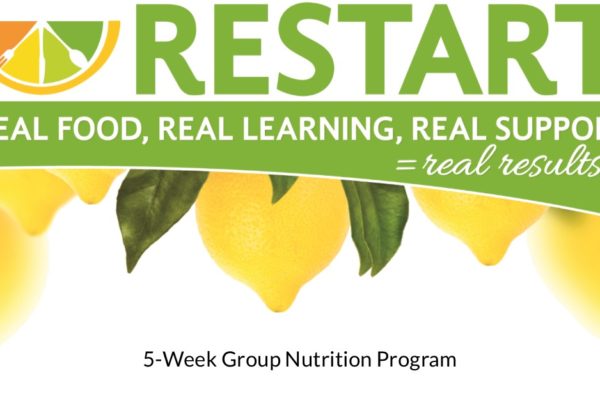Excerpt from Principles of Healthy Diets a complimentary pamphlet offered by The Weston A. Price Foundation. Weston A. Price Foundation is a nonprofit, tax-exempt nutrition education foundation. Read our mission statement. . . Become a member and receive our lively and informative quarterly journal. Click here for a message from Sally Fallon Morell. Read our Dietary Guidelines here.
 “Avoid saturated fats.” Saturated fats play many important roles in the body. They provide integrity to the cell wall, promote the body’s use of essential fatty acids, enhance the immune system, protect the liver and contribute to strong bones. The lungs and the kidneys cannot work without saturated fat. Saturated fats do not cause heart disease. In fact, saturated fats are the preferred food for the heart. Because your body needs saturated fats, it makes them out of carbohydrates and excess protein when there are not enough in the diet.
“Avoid saturated fats.” Saturated fats play many important roles in the body. They provide integrity to the cell wall, promote the body’s use of essential fatty acids, enhance the immune system, protect the liver and contribute to strong bones. The lungs and the kidneys cannot work without saturated fat. Saturated fats do not cause heart disease. In fact, saturated fats are the preferred food for the heart. Because your body needs saturated fats, it makes them out of carbohydrates and excess protein when there are not enough in the diet.
“Limit cholesterol.” Dietary cholesterol contributes to the strength of the intestinal wall and helps babies and children develop a healthy brain and nervous system. Foods that contain cholesterol also provide many other important nutrients. Only oxidized cholesterol, found in most powdered milk and powdered eggs, contributes to heart disease. Powdered milk is added to 1% and 2% milk.
“Use more polyunsaturated oils.” Polyunsaturates in more than small amounts contribute to cancer, heart disease, autoimmune diseases, learning disabilities, intestinal problems and premature aging. Large amounts of polyunsaturated fats are new to the human diet, due to the modern use of commercial liquid vegetable oils. Even olive oil, a monounsaturated fat considered to be healthy, can cause imbalances at the cellular level if consumed in large amounts.
“Avoid red meat.” Red meat is a rich source of nutrients that protect the heart and nervous system; these include vitamins B12 and B6, zinc, phosphorus, carnitine and co-enzyme-Q10.
Cut back on eggs.” Eggs are nature’s perfect food, providing excellent protein, the gamut of vitamins and important fatty acids that contribute to the health of the brain and nervous system. Americans had less heart disease when they ate more eggs. Egg substitutes cause rapid death in test animals.
Restrict salt.” Salt is crucial to digestion and assimilation. Salt is also necessary for the development and function of the nervous system.
“Eat lean meat and drink lowfat milk.” Lean meat and lowfat milk lack fat-soluble vitamins needed to assimilate the protein and minerals in meat and milk. consumption of lowfat foods can lead to depletion of vitamin A and D reserves.
“Eat 6-11 servings of grains per day.” Most grain products are made from white flour, which is devoid of nutrients. Additives in white flour can cause vitamin deficiencies. Whole grain products can cause mineral deficiencies and intestinal problems unless properly prepared.
Eat at least 5 servings of fruits and vegetables per day.” Fruits and vegetables receive an average of 10 applications of pesticides, from seed to storage. Consumers should see out organic produce. Quality counts!
“Eat more soy foods.” Modern soy foods block mineral absorption, inhibit protein digestion, depress thyroid function and contain potent carcinogens.
Dr. Price consistently found that healthy isolated peoples, whose diets contained adequate nutrients from animal protein and fat, not only enjoyed excellent health but also had a cheerful, positive attitude to life. He noted that most prison and asylum inmates have facial deformities indicative of prenatal nutritional deficiencies.
|
Traditional Versus Modern Diets |
|
|
Traditional Diets Maximized Nutrients |
Modern Diets Minimize Nutrients |
| Foods from fertile soil | Foods from depleted soil |
| Organ meats preferred over muscle meats | Muscle meats preferred, few organ meats |
| Natural animal fats | Processed vegetable oils |
| Animals on pasture | Animals in confinement |
| Dairy products raw and/or fermented | Dairy products pasteurized or ultrapasteurized |
| Grains and legumes soaked and/or fermented | Grains refined, and/or extruded |
| Soy foods given long fermentation, consumed in small amounts | Soy foods industrially processed,consumed in large amounts |
| Bone broths | MSG, artificial flavorings |
| Unrefined sweeteners | Refined sweeteners |
| Lacto-fermented vegetables | Processed, pasteurized pickles |
| Lacto-fermented beverages | Modern soft drinks |
| Unrefined salt | Refined salt |
| Natural vitamins occurring in foods | Synthetic vitamins taken alone or added to foods |
| Traditional cooking | Microwave, Irradiation |
| Traditional seeds, open pollination | Hybrid seeds, GMO seeds |









